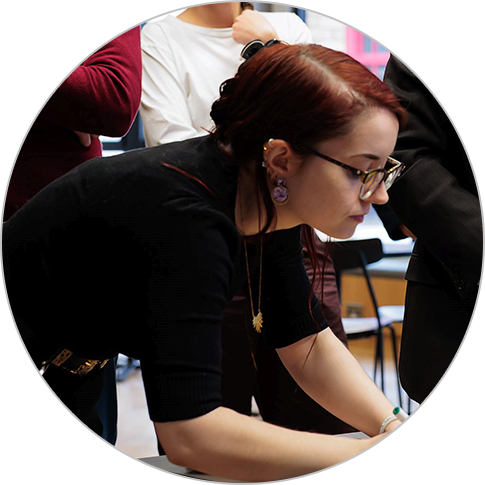
Our People .

Monitoring, Evaluation, and Learning (MEL) Practice Lead, Chemonics UK Niki Wood
Niki Wood is an award-winning mixed-methods Monitoring, Evaluation, and Learning (MEL) expert, specialising in weaving together behavior change theory, complexity science, and systems-thinking into accessible and participatory approaches for project teams. She is currently the MEL Practice Lead at Chemonics UK.
Niki has led the design and delivery of complexity-sensitive MEL for projects funded by USAID, FCDO, DFAT, the U.N., and NORAD across Africa, Eastern Europe, and the Middle East, with specific expertise in Central Asia. Niki is interested in MEL innovation, having developed mechanisms and tools to measure the ‘unmeasurable’ that have been showcased on global platforms. She brings expertise in delivering interactive training sessions on modern MEL methods, with trainees heralding from NATO, the Stabilisation Leaders’ Forum, the FCDO, and HMG ODA Departments.
Before joining Chemonics, Niki worked for the international development supplier Palladium and then moved to the U.K. government, where she led the MEL team in the delivery arm of the U.K. Stabilisation Unit. Niki holds a B.A. and M.A. in analytical philosophy from the University of Cambridge and the AMP Project Management Qualification.
by Niki Wood
Why Now Is the Time To “Pause and Reflect” on the Way We Approach Learning
“New year, new me!” Who hasn’t fallen into the temptation to view the new year as a clean slate, a time to reflect on past habits and what this year can bring? We certainly tend to do this for our programmes, seeing the new financial year as a fresh start to deliver even more positive…
Should Evaluators Take a Step Back? Enabling Frontline Staff to Lead the Learning Process
Facilitating workshops to support learning can feel like an obligation rather than a beneficial activity. The frontline staff experiencing change first-hand are often not at the center of reflective exercises, limiting their influence on decision-making, learning, and adaptation. This is a problem: interventions that do not incorporate learning from frontline staff will struggle to be…
Rapid Research and Behavior Change in Conflict-Affected Syrian Schools: An Oxymoron?
Tragically, corporal punishment, humiliation, and other negative discipline techniques are common practices in Syrian schools. Conflict traumatizes teachers and robs them of training opportunities, often giving rise to a culture of physical and mental punishment. The Chemonics-led Syria Education Programme, which has provided nearly half a million primary-school-age children with a safe and quality education,…
Stop Evidencing Complex Results with Just Numbers and Embrace Narrative
‘Complexity’ is a term that we have heard a lot over the last year. The degradation of our climate is a complex crisis. COVID-19 is a complex issue. Everything feels complex currently. ‘Systems’ is equally vogue. Whether talking about doughnut economies or how education impacts resilience, acknowledging that everything operates within fluctuating, interrelated systems is…

